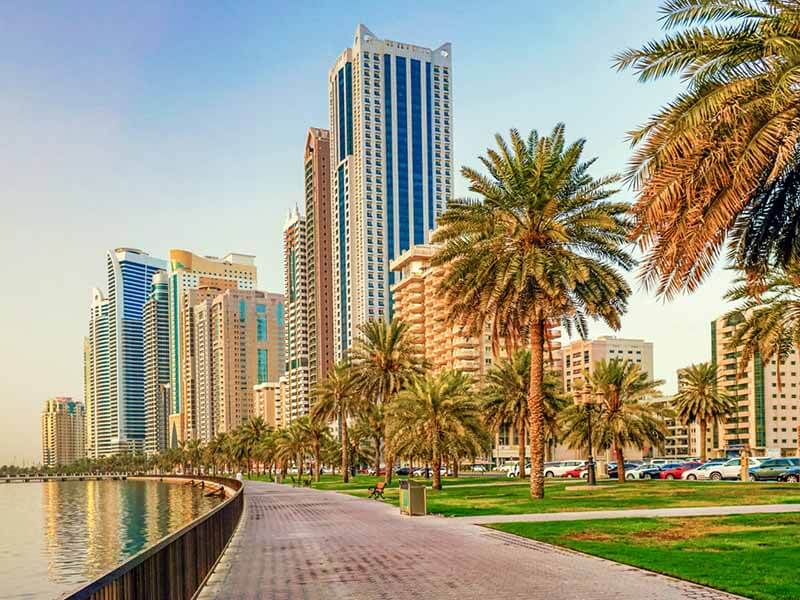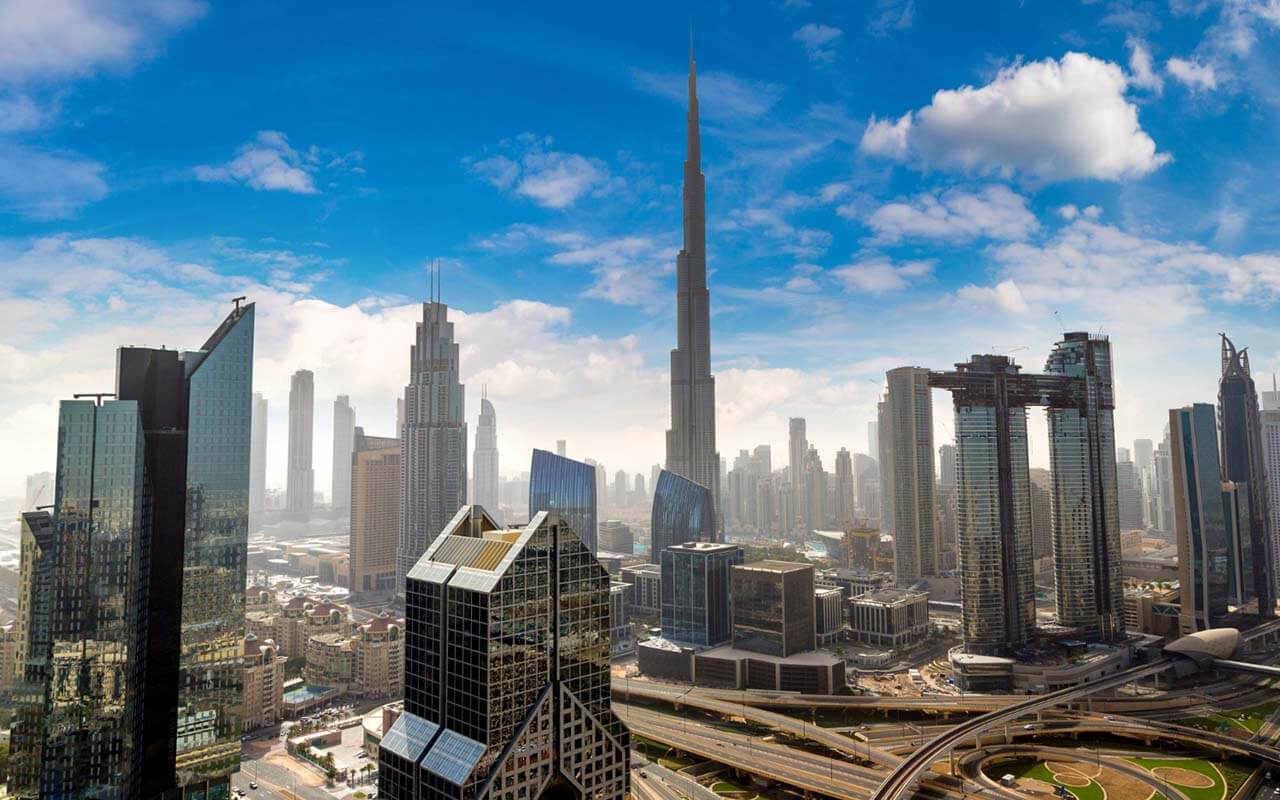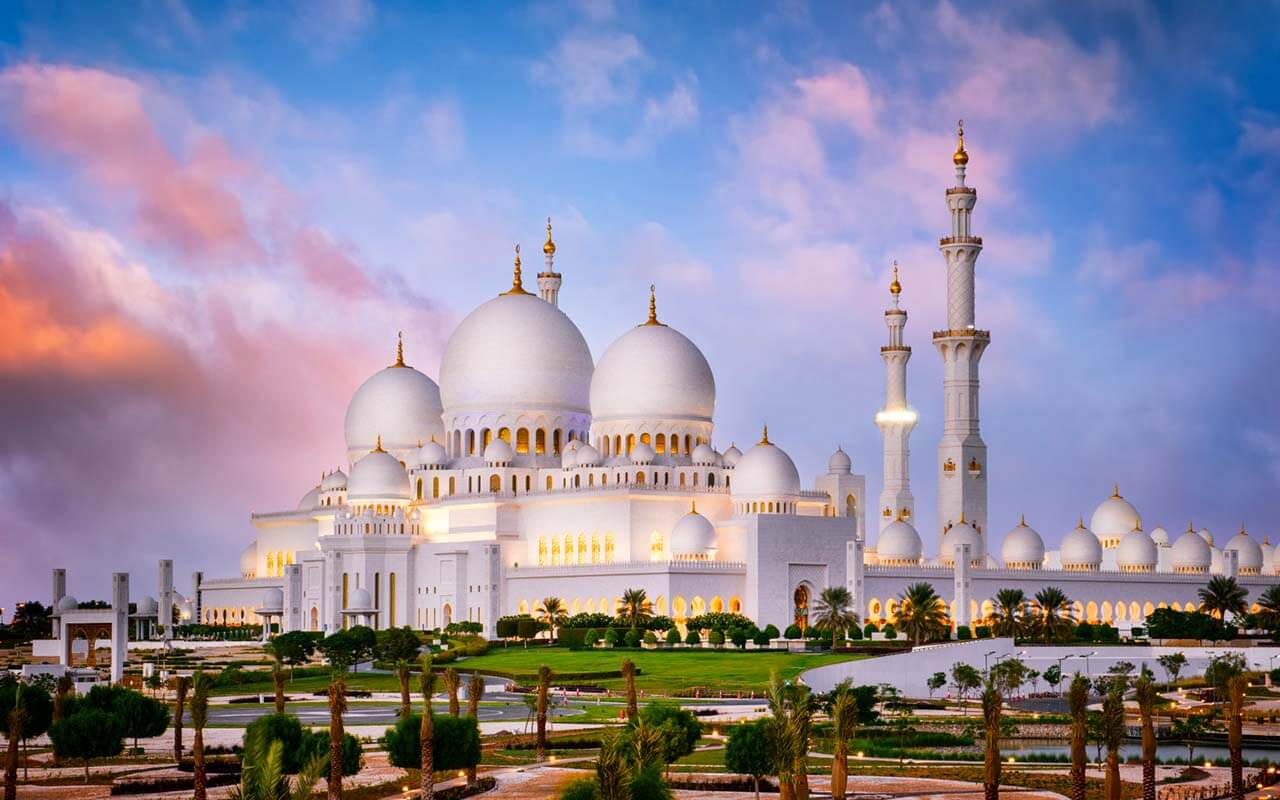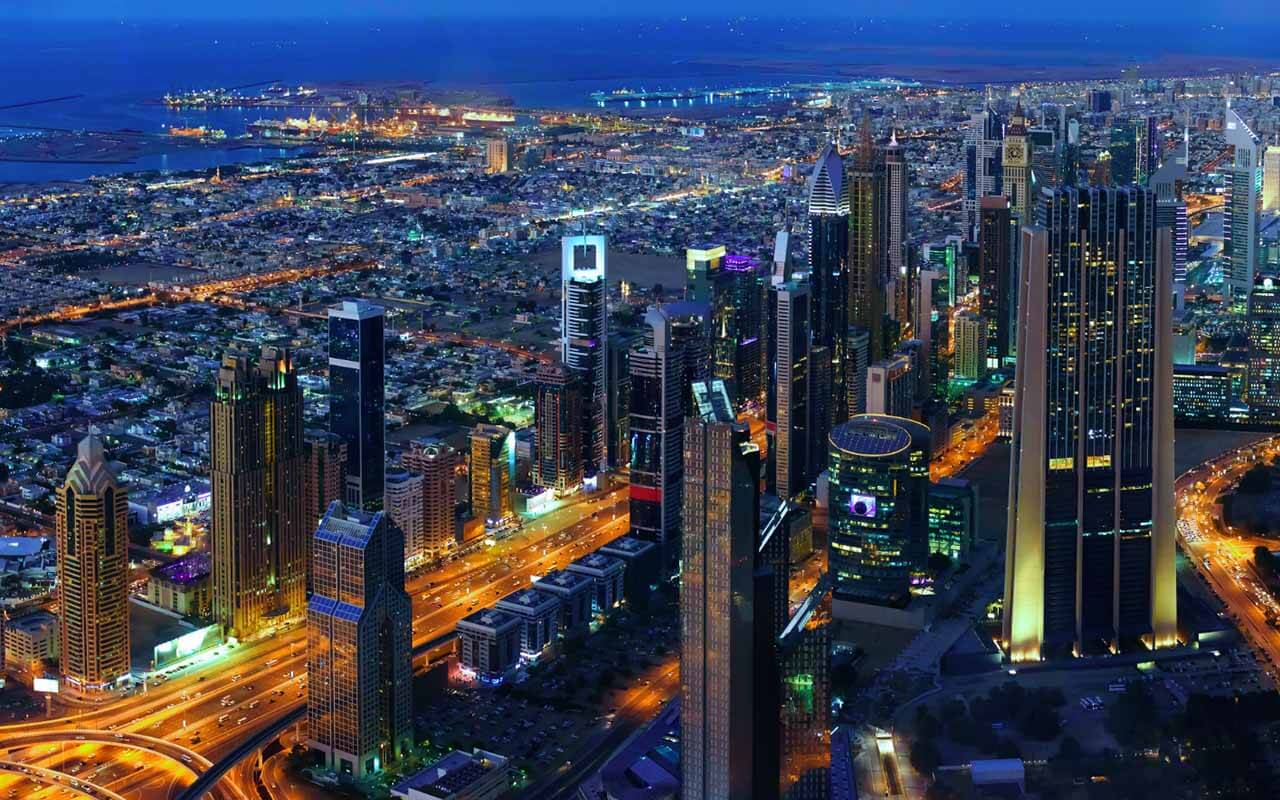
There are dozens of articles about life in the United Arab Emirates, as well as, about the local real estate market.
However, in this article, we’re going to look into the most unusual and interesting facts, after which you can easily imagine what kind of country it is.
Content:
Things you should know before visiting UAE
Emirates, government, and work
UAE is a monarchy formed from a federation of seven emirates with each having a large degree of independence, cultural identity, and lifestyle.
For instance, if you want to move to the UAE to work, then Abu Dhabi or Dubai are the perfect options.
Abu Dhabi is the capital and the largest emirate, occupying 87% of the UAE.
Dubai is the largest commercial and transportation hub.
Abu Dhabi is the largest religious and cultural hotspot and economically, this emirate alone provides about 60% of the country’s GDP.
Meanwhile, Dubai has some of the world’s busiest ports and airports. In 2018, there were 15.93 million international overnight tourists.
Although living in the shadow of Dubai and Abu Dhabi, the other five emirates also play a key role in the country’s life.
Ajman is the major agricultural region of UAE. If you want to see local mountains and picturesque provincial landscapes, Ajman is the perfect location.
The Emirate of Fujairah is a great place for tourism and boasts various sports attractions such as diving and windsurfing.
Ras Al Khaimah has kilometres of sandy beaches and crystal-clear waters from the Arabian Ocean, which makes it the dream resort destination. It’s home to the highest mountain peak in the UAE and the world’s longest zipline.
Sharjah is a more culturally oriented emirate from the perspective of a foreigner. There is the classic car museum, palace museums, aquariums, waterside promenade, an eco-tourism hotspot, including rare birds and vegetation, and mangrove forests.
However, the laws here are quite strict for everyone, even for foreigners. So drinking alcohol is prohibited, and both women and men are required to dress modestly.
Umm Al Quwain is a mix of old and new west with expressive Arab culture. There are many buildings of historical significance. You can even find military forts dating back to the 18th century.
In addition, Umm Al Quwain is home to one of the region’s largest water parks, Dreamland. Spread over an area of 250,000 square metres, it can host about 12,000 people daily.
The United Arab Emirates is a perfect place to live and travel, but you need to have deep pockets to afford all of the things it has to offer. Renting an apartment in Abu Dhabi and Dubai can cost more than $1,600 per month.
A big advantage for expats coming to the UAE is that the country does not levy many taxes, for example, individual income tax and property tax. However, there are other high charges.
Below are some major points about work in the UAE.
Being commercial and trade hotspots, Abu Dhabi and Dubai are the key emirates to look for work.
While UAE’s oil production, management, construction, and tourism sectors are the driving forces of its economic growth, the country also has a thriving tech sector, healthcare and commerce industries.
To start living in the UAE, you won’t have to puzzle over it for long. If you arrive as a tourist, a visa on arrival will be issued to you right at the airport. A residence visa (for 2, 5, or 10 years, depending on the basis for obtaining it) can be obtained when purchasing real estate, legally working for a local company, or investing in the country’s economy. All long-term visas are renewable if you continue to meet the requirements. You can also easily relocate with your family by obtaining dependent visas for children and your spouse.
If you decide to move to the Emirates with all your belongings, consider the expenses for transporting your things, which can be quite significant.
The Emirates place a strong emphasis on expats with families. Most residential areas are designed to provide optimal access to schools, healthcare facilities, family recreation areas, children’s playgrounds, parks, and everything else that families with children may need.
The United Arab Emirates is a safe place to live, ranking second in the Numbeo Safety Index after Qatar.

Culture, laws, and language
With Islam being its dominant religion, UAE has rather strict laws. Many things may seem strange to uninformed newcomers.
However, the first interesting thing to know is that you don’t need to learn Arabic to live in the UAE comfortably. Especially, since 88.5% of the population of the Emirates are foreigners who mostly speak English.
This is a crucial aspect in a country that is so heavily dependent on tourism and international commerce.
Although, many of the UAE’s cultural differences coexist with its rapid westernisation.
For example, if you are not a Muslim, you can consume alcoholic beverages but only in hotels, bars, and restaurants. It is prohibited in public places and especially on the streets.
Remarkably, there are no restrictions for foreign women like one would expect there to be in an Arab country. However, it is advisable to adhere to the local dress code, covering shoulders and knees beyond the beach. This also applies to men.
Violating public norms, such as using offensive language, can even lead to imprisonment.
Additionally, you can also be deported for filming car accidents or sentenced to 1-year imprisonment for having sex before your wedding. However, you can do most if not all of these things if no one sees you.
The United Arab Emirates is a very specific country and it would be a big mistake to go there unprepared.
Special mention should be made of restrictions related to Ramadan. It is forbidden for everyone, without exception, to eat and drink in public during the sacred month for Muslims.
Healthcare, climate, and cuisine
The UAE is one of the largest private healthcare markets. The number of private clinics and hospitals far exceeds that of state-owned ones.
This makes sense when you consider that only UAE citizens are entitled to full health care in public health facilities. For non-citizens, only urgent medical care is available.
In Dubai and Abu Dhabi, having health insurance is mandatory. So, if you plan to become a permanent resident of the Emirates, you will be required to obtain a policy.
Still, it is beneficial to buy it. Dubai is a major health tourism destination with its private clinics having a solid reputation. They often employ foreign specialists, while the local ones are trained according to certified international educational programmes.
As for the climate, summers can be hot and not everyone can endure the extreme temperatures of 45‒49 °C. However, a high-quality air conditioning system that works everywhere helps with this.
In winter, temperatures rarely drop below 15–20 °C, allowing for enjoyable seaside activities even in the coolest months.
Dates are the jewel in the crown of Emirati cuisine. There is an incredible variety of dishes containing this fruit. The UAE’s annual production of dates has reached over 530,000 tonnes.
Speaking of global cuisine, even bacon is not rare in the UAE despite the religious restrictions on the consumption of pork products. You can buy it in specialised shops that sell meat to restaurants and retail customers.
The local restaurants serve a variety of cuisine which includes but is not limited to Indian, Italian, French, and Japanese food.
In Abu Dhabi, the different varieties of falafel, curry and hummus are especially popular.

Real estate market facts and features
Let’s outline the features that make the United Arab Emirates a unique place.
Luxury and mega projects
- The Burj Al Arab hotel alone contains enough gold to cover a portrait of the Mona Lisa 46,265 times over. The building’s interiors are decorated with about 1,790 square metres of 24-carat gold leaf. Just imagine, this is approximately a quarter of an average football field size.
- Dubai accounts for roughly 25% of the global annual gold trade.
- A UAE police car costs more than a 4-6-year college degree tuition in the United States.
- The amount of sand used in Palm Jumeirah’s construction could fill 2.5 containers of the same size as that of the Empire State Building.
- The world’s tallest building is located in Downtown Dubai.
- UAE has the world’s longest driverless metro network.
- Dubai is home to the biggest flower garden in the world.
This list could be even longer. But ultimately, all this means is that wherever you go in the UAE, you’ll always stumble upon something that’s the biggest or the most expensive.
While the above-mentioned facts listed some of the interesting features about the UAE, let’s look at some of the more practical aspects the country has to offer in the list below.
UAE property market paradox
- Although the Emirates’ calling card is expensive real estate, it is also one of the most affordable in the world.
- Prices in certain areas, such as Jumeirah Bay, can increase by 100% in a year.
- In Dubai, there are no traditional postal codes. To receive or send mail, you’ll need a P.O. box number. This is a 5-digit code assigned to every business or individual renting a box. You’ll need to arrange it yourself at the post office.
- In Bur Dubai, there’s a village built in the late 19th century that has remained unchanged to this day. It is open to visitors. Real estate cannot be bought here, for obvious reasons.
- For an unpaid loan, such as a mortgage, you could be sent to jail.

Conclusion
As you can see, the UAE is truly unique. One of a kind.
Proof of this can be seen in some of the unexpected traditions and customs. Even if you’re not a believer, there’s no getting away from the local laws.
Foreigners are exempt from many mandatory taxes, but a great range of fees for government services or insurance costs could hit you in the pocket. In a worst-case scenario, you can be arrested for an unpaid debt.
In addition to this, the weather is always sunny in the UAE. Still, the summer months are somewhat unbearable. On the other hand, however, winter is very comfortable with all-year-round beach access.
We recommend that tourists and potential expats explore the cultural and legal specifics of this country. It will make your stay in the UAE more relaxed and fewer inconveniences will be likely to crop up.








































